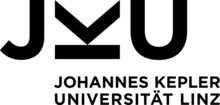Maximilian Lock: Time as a Thermodynamic Limit, Generic Clocks and Random Matrix Theory
Time as a Thermodynamic Limit, Generic Clocks and Random Matrix Theory
The notion of an “ideal” clock is occurs in both quantum theory and the theory of relativity. It is a hypothetical system which tracks the flow of time in a consistent, continuous and unbounded manner. It has been shown in both quantum and relativistic contexts, however, that such clocks cannot exist. According to the principle of operationalism, the corresponding conception of time is therefore also an idealisation. The goal of this project is to use thermodynamic arguments to show how this idealisation arises as an approximation to a typical realistic system, becoming more accurate as the system becomes more complex. This helps us to understand how our classical notion of time might emerge from some underlying physical elements, a necessary step in theories such as canonical quantum gravity. It may also provide clues to what a conception of time which fully incorporates quantum theory might look like.
The ESQ Discovery Programme provides the freedom to explore promising new avenues, outside of the corset of the usual grant structure. It performs the vital role of encouraging us to stray from well-trodden paths.
Navigation
Contact
ESQ Office
Austrian Academy of Sciences (ÖAW)
Atena Zalbeik-Dormayer
Boltzmanngasse 5
1090 Vienna
office(at)esq-quantum.at






